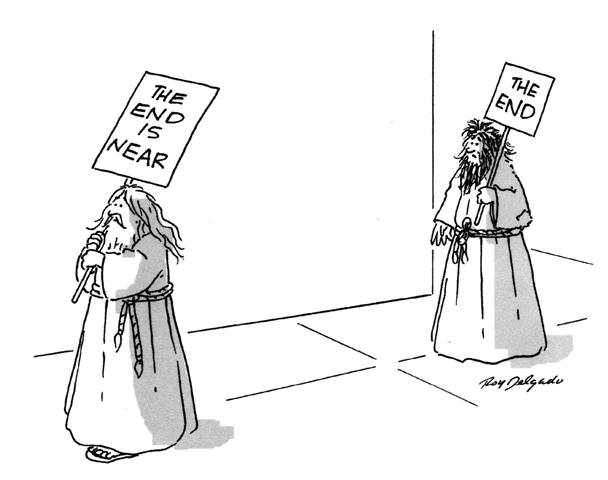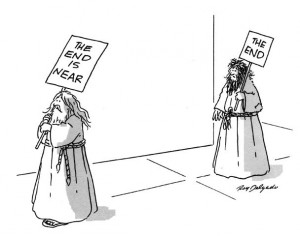Has the Sympocalypse Arrived? Only If We Think It Has
“The era of the symphony orchestra is done.”
So begins Michelle Jones’s recent post on violinist.com, the latest addition to a slew of articles by various musicians and critics predicting the symphony orchestra’s impending demise. Like many college music students, I feel an uncomfortable gnawing of dread whenever one of these types of articles pops up in my Facebook newsfeed. Did I make the wrong decision to pursue music professionally?, I wonder. Will practicing Beethoven 5 and Don Juan ad nauseum really do me any good? And if I do get lucky and win an orchestral job someday, will I be performing for an increasingly vibrant and diverse audience, or a steadily dwindling “sea of gray”?
These types of questions are precisely those which Jones attempts to answer in her article. Much of the piece is devoted to a list of proposed reforms to the typical curricula prescribed for music majors, based on the premise that winning a well-paying orchestra job is so unlikely that it’s much more realistic to embrace the concept of entrepreneurial musicianship: thinking outside the figurative box in order to avoid living in a literal box. While some of Jones’s ideas are admittedly a bit of a stretch–such as the proposed requirement that all music majors also obtain a business degree–they are generally good suggestions, and many, such as the requirement for proficiency with amplifiers and recording equipment, are certainly necessary skills for any musician to have in our rapidly changing field. In fact, many major music schools have implemented programs focused on promoting this type of entrepreneurial thinking, such as the New England Conservatory’s Entrepreneurial Musicianship Department and the Eastman School of Music’s Institute for Music Leadership.
However, Jones’s rationale for these suggested reforms–that the death knell has sounded for the symphony orchestra–is obviously controversial. While the financial struggles, bankruptcy and nightmare contract negotiations that have plagued orchestras in recent years are certainly a cause for concern, I respectfully disagree with her claim. The assumption that the dreaded and apparently long foreseen “sympocalypse” is upon us implies that entrepreneurial initiatives are a means of coping with the crisis, when in reality they represent its solution. Appealing to a new and diverse audience demographic and considering alternative means of presenting classical music is the underlying goal of the entrepreneurial musicianship movement. The reason why there is a decreased cultural interest in classical music is not because the music itself is irrelevant, but because popular culture perceives it to be, and if we take it out of the concert hall and into the lives of the communities around us, we will have a very good chance of eradicating the ugly, alienating barriers that have formed around it over the years. I admit that I am not an orchestra manager, an economist, or an expert on audience engagement. But from my perspective as a first-year graduate student, it seems to me that the era of the symphony will only truly be over if we believe that it is. If we continue to have faith in the potential of the orchestra to enrich the lives of communities and make a valuable contribution to contemporary culture, then it will always be a vibrant facet of the arts.
What do you think? To what extent should entrepreneurial initiatives be implemented in a college music education? Are mastering such skills as the ones that Michelle Jones proposes our only hope for securing stable employment in the modern field, or a potential solution to its current problems? Comment below to contribute to this important discussion.


